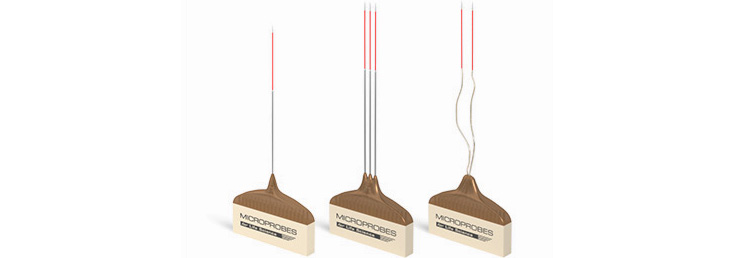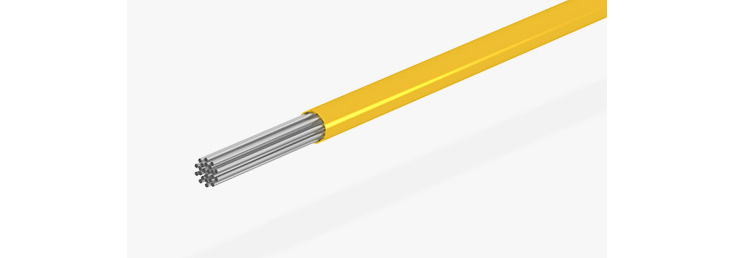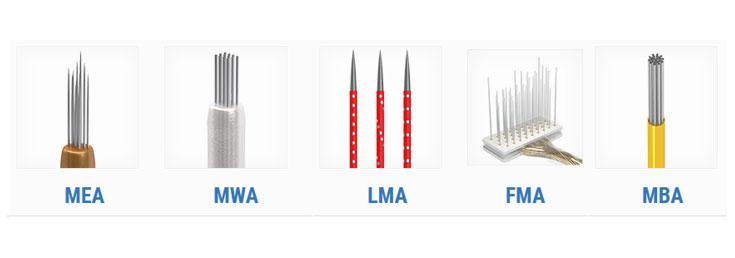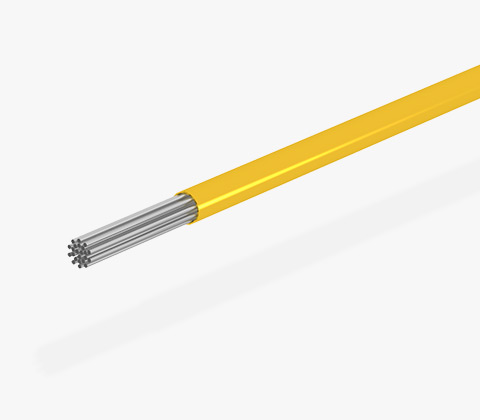
Microwire Brush Arrays (MBA)
The Microwire Brush Array MBA was developed in cooperation with Dr. David Leopold’s Laboratory at the National Institutes of Health. The design concept, which features a large number of microwires tightly bundled within a single Microfil tube, provides a unique approach for recording and/or stimulating small neural pools below the cortical surface. The Microwires are designed to separate and splay out as they are implanted.
The design concept allows a large variety of configurations to cater specifically to the researcher’s application and experimental protocol.
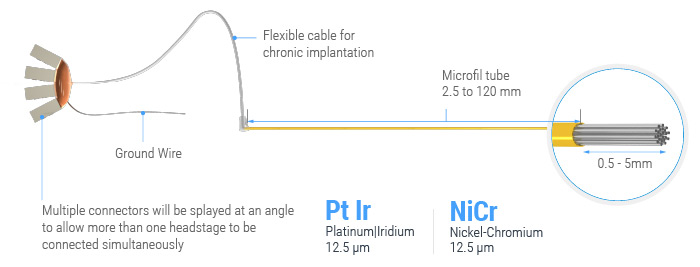
User Specify
- Up to 96 individual microwires.
- Multiple wires diameters may be specified within a single array.
- Can be configured for either acute or chronic implantation.
- May be re-used for acute applications.
- Chronic designs feature a flexible silicone cable between the brush array and connector, allowing the array to move freely with the brain.
- Brush Array designs are adaptable to a large number of connector types.
- Overall length can be specified between 2.5 mm to 120 mm.
- Shank diameter depends on the number and size of microwires selected.
Publications
Microwire Brush Array Electrodes
The microwire 'brush' array electrodes that are now commonly used in the SCNI were initially...
One month in the life of a neuron: longitudinal single-unit electrophysiology in the monkey visual system
Conventional recording methods generally preclude following the activity of the same neurons in...
Face-selective neurons maintain consistent visual responses across months
Face perception in both humans and monkeys is thought to depend on neurons clustered in discrete,...
How to order:
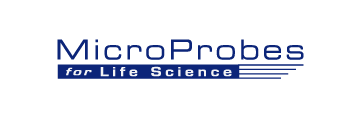
Please contact the manufacturer, MicroProbes directly for further specifications and ordering. We would appreciate if you mention "Science Products" at any order or inquiry.
Online design form
Related Products:
|
Floating Microelectrode Arrays (MicroProbes) |
(MicroProbes) |
(MicroProbes) |
|
(MicroProbes) |
Pt/Ir (MicroProbes) |
Pt/Ir (MicroProbes) |
|
Optogenetic Pt/Ir (MicroProbes) |
(PDF) |


